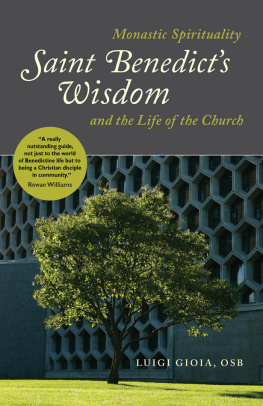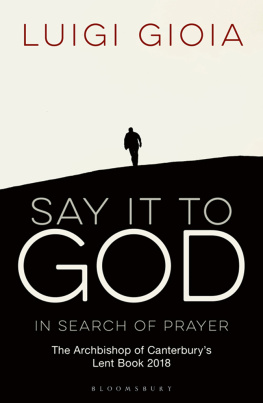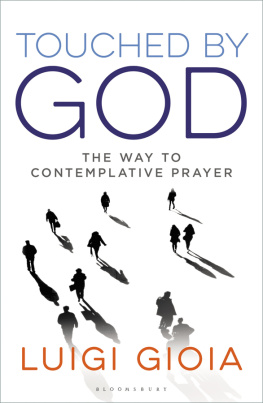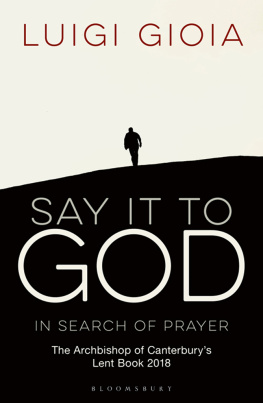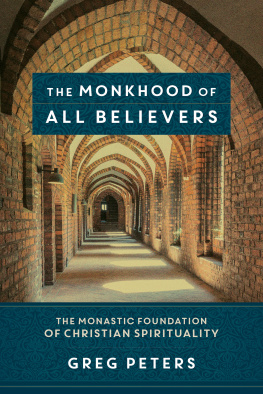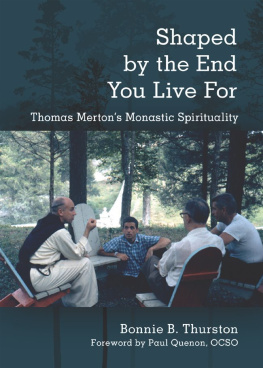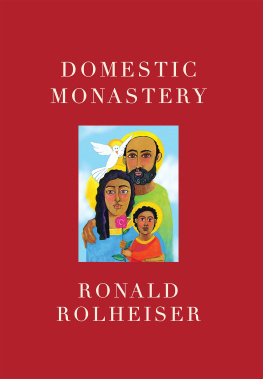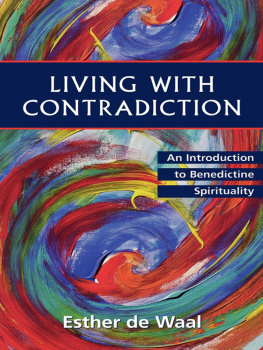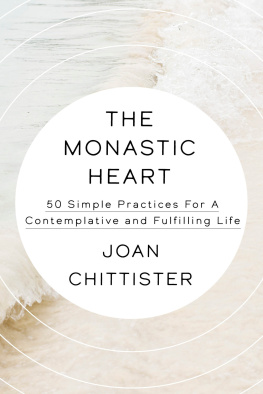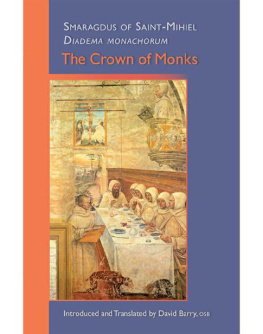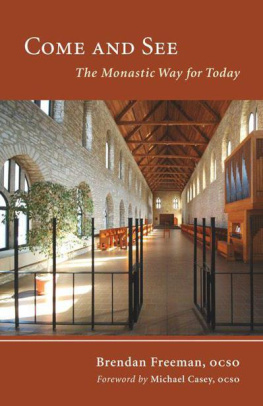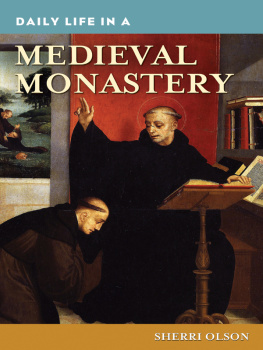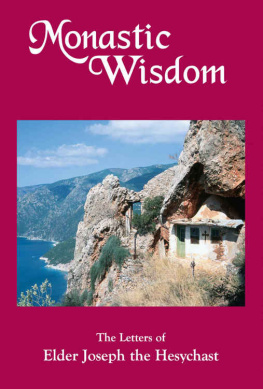Introduction
What is being made in the workshop [of Benedictine monasticism] is soulsbodily human beings who understand themselves with growing clarity and are engaged in creating a durable life together.
Rowan Williams
I remember well how, at age 18, I spent the first months of my novitiate in a Benedictine monastery deeply resenting the piercing corridor bell that woke me up before dawn every morning for Matins. Struggling to emerge from my uneasy sleep, I would invariably wonder what on earth I was doing in that place.
It was just an initial reaction, and as soon as I had washed my face with cold water and recovered my wits, my resentment was replaced by a feeling of genuine excitement about the day that lay ahead. Then one day I came across a sentence from the Bible that changed everything: Whoever gets up early to seek her [Wisdom] will have no trouble but will find her sitting at the door (Wis 6:14, my translation). I remember being immediately seduced by the idea that waking up early every morning was more than just obeying a rule or fulfilling a duty. It appeared to me as a step in a quest for wisdom, with the promise that my perception of things would change over time and I would start experiencing them in a deeper and more meaningful wayand especially that I would start enjoying those very things that I still found upsetting or irritating.
What endeared Wisdom to me was this image of her sitting at my door, ready to walk with me and to teach me how to find delight in Gods presence and in the company of people. We are told that she is daily [Gods] delight, rejoicing before him always and also that she rejoic[es] in his inhabited world and delight[s] in the human race (Prov 8:30-31, NRSV). Delighting and rejoicing: is this not what we are all looking for?
This book stems from that initial realization and is rooted in the following decades of life in several communities in Italy and France and of preaching retreats in monasteries all over the world, including China, Korea, Australia, Philippines, Canada, and the US. Wisdom is not just a quality we acquire, but somethingor better, someone we are called to become. This, I think, is the reason she is personified in Scripture. We become her by learning from her to find delight in the company of God and of our sisters and brothers and by opening our inner ears to the anointing within (cf. 1 John 2:20).
In the history of Christianityor better, of the whole of humanityWisdom takes a bewildering variety of forms. This book explores the Wisdom that has developed in Christian monasticism owing to one of her greatest friends, the sixth century monk Benedict of Nursia (480547), who describes the monastery as the school were monastics learn how to serve God, the workshop where they handle the tools of good works, and the house governed a sapientibus et sapienter , that is, by monastics who have become friends of Wisdom (cf. Rule of Benedict [RB] 53.22).
Even though the work that Benedict handed down to future generations is called The Rule, and indeed contains a number of instructions and norms, it would be a mistake to approach it as a legislative text. None of todays countless communities of monks and nuns known as Benedictine treats the Rule in this wayin fact, their daily life is regulated by specific collections of regulations variously known as customaries, constitutions, or directories. Benedicts Rule endures rather as a source of inspiration. Monastics tirelessly read, meditate, and comment on it to unearth its many gems of prudence and discretion. It should be seen as an instance of the literary genre known as sapiential (from sapientia , wisdom) or, better, of the sapiential vein that runs through the whole of Scripture.
We, too, therefore, shall expound the Rules spiritual insights in the light of the biblical books of Proverbs and Wisdom. People who read the Rule for the first time can find it dry, be put off by some of its prescriptive portions, and entirely overlook its spiritual value and its significance for the life of the church and of society today. A monk once told me that only with old age had he become able to grasp the real depth and breadth of Benedicts wisdom.
Two principles have guided my own modest attempt to learn from this wisdom.
First, the conviction that the Rule is not meant to be read in isolation. It is not a self-referential textif anything, it is totally other-referential. Its final chapter makes this clear by inviting monastics not to confine themselves to the reading of the Rule but to complement it with a variety of other Christian texts, not only from monastic literature, but by any of the catholici patres , that is, theologians, biblical commentators, or spiritual authors.
Second, and more important, it has become increasingly clear to me that the best way to disclose Benedicts treasures of wisdom is to read his Rule in the light of Scripture, or rather, of the Word of God (this distinction is essential, as we shall see). Benedicts mind, prayer, imagination, and memory were entirely molded by his continuous meditation upon Scripture. Famously, the Rule was described as the quintessence of the Gospel by the seventeenth-century French bishop Jacques-Bnigne Bossuet, and indeed it is a tapestry of Scriptural quotations and allusions. However, the Rules exceptional fruitfulness in this respect does not simply consist in the fact that it quotes the Bible but in its proven ability to teach us how to listen to the living word of God through the letter of Scripture.
This last point is the key to Benedictine spirituality and one of the main arguments of this book (especially in chapters ).
This decisive connection to the living word of God by which monastic life stands or falls lies behind the cornerstone of Benedictine spiritualitynamely, the principle that nothing is to be preferred to the Work of God. ).
It is, of course, always anachronistic to talk about spirituality in the case of any early Christian author like Benedict. Throughout the first millennium, Christians took for granted the identity between faith understood as loving and heartfelt trust in God (which we now call spirituality) and faith as beliefs, doctrines, and creeds (which we call theology). Today, we live in the aftermath of the divorce between theology and spirituality, ).
Probably no epithet captures Benedictine spirituality more aptly than healthy , in the sense of respecting and promoting the human flourishing of the whole person. Many modern readers are nonplussed, for example, by the extent to which a spiritual text like the Rule is far more concerned with the body than with the soul or the inner lifethat is, with the supposed place in us where we would have access to some form of immediate experience of God.
In fact, Benedict spends most of his time talking about eating, sleeping, working, reading, talking, smilingeven natures needs (RB 8.4) (that is, going to the bathroom!)and especially about toiling in community life. He has no illusions about the inevitable hardships of life in common, otherwise he would not have poured out so much ink offering guidance meant to prevent character assassination (cf. his many passages on gossiping and grumbling) or to make clear that monastics should resist the occasional urge to kill or punch each other (RB 4.3, 4.70, and 70).
And yet all these factors are deeply spiritual in Benedicts mind. For him, the heathiest way of seeking God is through community life, because he knows instinctively what phenomenology is rediscovering in our daynamely, that there is no access to interiority other than through interaction with our environment and others and no relation with God other than through the mediations of body, fellowship, history, and Scripture (chapter ).

